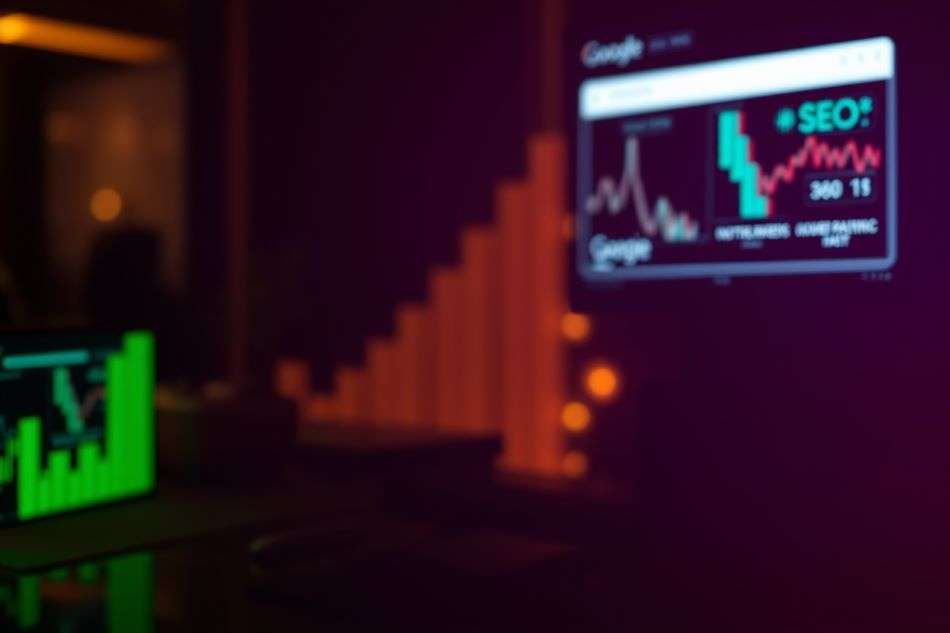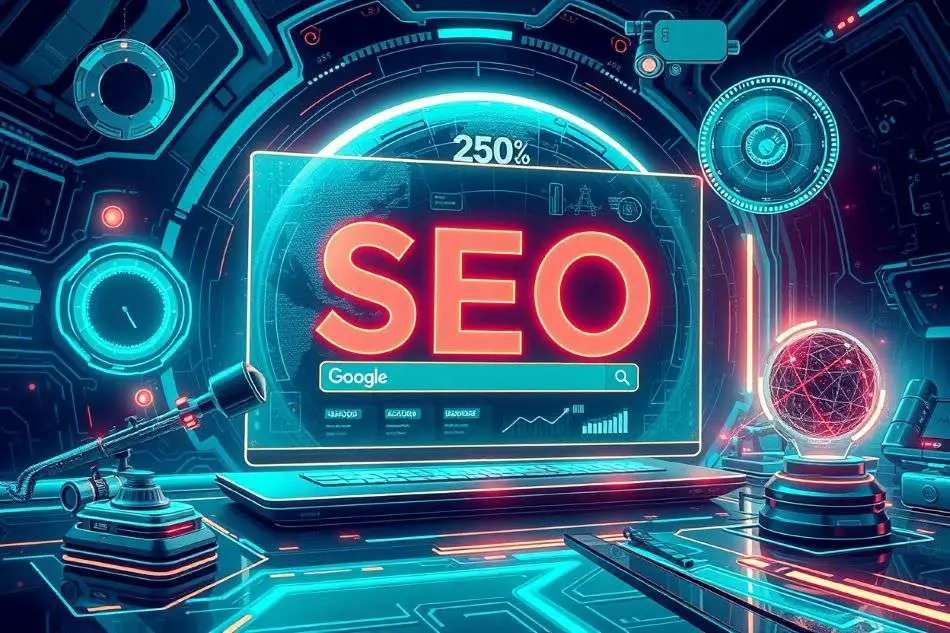AI Tools for data-driven SEO campaigns – what are the benefits?

How often do you search for something online and click the very first result? Probably more often than you realize, right? You’re not alone—most people do the same. But here’s the twist: for business owners, being that top result isn’t just luck. It’s a battle they fight with the help of SEO—search engine optimization. Why? Because that coveted top spot is where all the clicks, attention, and opportunities live.
SEO is all about improving a website’s performance to rank higher in search results, helping businesses connect with their target audience online. These days, SEO is no longer just about stuffing keywords, poor-quality backlinks or poor quality content. Artificial intelligence (AI) has completely changed the game, and that’s exactly why a Impressive SEO Agency is leading the way with cutting-edge strategies. While they might not be tech geniuses, they are sharing some knowledge bombs on how data-driven SEO campaigns work and why AI tools make them so powerful.
Key Takeaways
- Enhanced Features: Telegram client apps in 2025 offer enhanced security and AI-driven features.
- Consider Options: Look for client apps that support multi-account management and customization.
- Top Recommendation: NiceGram stands out for its balance of advanced features and user-friendly design.
- AI Benefits: AI integration in apps provides tools like real-time translation and smart replies, enhancing usability.
- Cost-Effective Choices: Most client apps are free, offering additional features beyond the standard Telegram app.
What Is a Data-Driven SEO Campaign?
A data-driven SEO campaign uses actual user insights—such as which pages people visit, how long they stay, and what types of content they engage with most. By tapping into these patterns, you can discover precisely what sparks your audience’s interest. It’s not about guesswork anymore; it’s about measurable facts leading to smarter decisions.
Why does this matter? According to BrightEdge Research, 68% of all online experiences begin with a search engine. That means the better you use real data to fine-tune your site, the closer you get to that coveted first-page ranking. More visibility often translates to more clicks, sign-ups, and sales.
Practical Tip: Use tools like Google Analytics and Google Search Console to see metrics such as bounce rate, average session duration, and top-performing pages. If your bounce rate is high on a particular page, investigate why. Is the content too long? Not relevant? Maybe it lacks a strong call to action. Adjust and watch how your numbers respond.
How AI takes data-driven SEO campaigns to the next level
A few years ago, AI at this scale felt futuristic. Now it’s a daily reality. It powers everything from movie recommendations on Netflix to automated chat support on e-commerce sites. In SEO, AI works behind the curtain, analyzing mountains of data in real time to uncover hidden patterns, opportunities, and emerging trends.
5 practical ways AI supercharges your SEO efforts:
Faster, smarter data analysis
Instead of manually poring over keyword spreadsheets, AI tools (like Semrush’s Keyword Magic Tool or Ahrefs’ Keyword Explorer) crunch millions of data points instantly. They highlight quick-win opportunities—like keywords with moderate search volume but low competition—so you can pivot your strategy quickly.
Real-World Example: An online bookstore used AI-powered keyword analysis to identify a gap in “children’s mystery ebooks.” By optimizing product pages and blog posts around that niche, they saw a 27% increase in organic traffic in just three months.
Better keyword suggestions
It’s not just about finding any keywords; it’s about unearthing the right ones. AI monitors real-time search trends, user intent, and seasonal shifts. It then suggests phrases your audience genuinely searches for—sometimes phrases you’d never guess on your own.
Creating content that clicks
AI doesn’t just spit out keywords; it provides on-the-fly content suggestions, whether that’s the tone of your headline or the structure of your blog post. Tools like Surfer SEO or Clearscope analyze top-ranking pages in your niche and recommend word count, subtopics, and key phrases that match user expectations and search engine algorithms.
Combine AI with human creativity. While an AI might suggest you write about “Summer 2024 Travel Deals in Sydney,” your personal stories, brand voice, and unique angles will separate you from cookie-cutter competitors.
Tailored experiences for visitors
Imagine personalizing your site so thoroughly that each visitor sees content tailored to their past interactions. AI systems can detect returning users, note their previous page visits, and serve up relevant blog posts or product recommendations.
Example: A tour operator in Sydney integrated AI to recommend tours based on a visitor’s last viewed destinations. If someone checked out beach tours previously, they’d see special offers for Bondi or Manly Beach as soon as they returned to the site. This personalized approach boosted repeat visits and conversions by 20%.
Keeping an eye on the competition
Tools like SpyFu or SimilarWeb use AI to track your competitors’ ad campaigns, top keywords, and traffic sources. You can see which strategies are working for them—and craft your own plan to stand out.
If you notice a competitor ranking for “private brewery tours,” but their reviews highlight poor customer service, you can target the same keyword while emphasizing your brand’s exceptional hospitality.
Why AI tools matter for businesses

Whether you run a corner cafe in Melbourne or a sprawling e-commerce store across the world, AI-driven SEO helps you:
- Save time and money: AI can quickly identify strategies that work and weed out those that don’t. By focusing on high-impact areas, you reduce wasted ad spend or time spent on low-return tasks.
- Stay flexible: Google’s algorithm reportedly changes thousands of times a year. AI keeps tabs on these shifts and makes real-time adjustments, so your SEO campaigns won’t be left in the dust.
- Connect with your audience: By analyzing search intent and user behavior, AI figures out exactly where your audience is hanging out online. It then tailors your website’s content and outreach to those channels.
How to get started with AI for SEO
Ready to give AI a try but not sure where to start?
- Know your audience and goals: Use surveys, feedback forms, and data from platforms like Google Analytics to define your ideal customer. Pinpoint what you want: higher email sign-ups, more app downloads, or direct sales?
- Test and observe: Launch small-scale AI-powered campaigns. Maybe A/B test a landing page or try new keyword clusters. Monitor performance metrics—like click-through rates, dwell time, and conversions—to see what resonates.
- Conversions over traffic: Don’t chase traffic just for numbers. Track engagement and conversion metrics, too. You want action, not just visits.
The future is now – and it’s AI-powered
AI tools won’t replace your brand’s unique voice or your capacity to innovate—they’re here to amplify your abilities. Think of them as powerful collaborators. By harnessing data-driven insights, you can expand your online visibility, fine-tune your marketing message, and grow sustainably. The key is to keep experimenting, learning, and adapting as both technology and consumer behaviors evolve.
Ultimately, you remain at the helm of your business. AI just gives you sharper eyes on the road ahead. With a data-driven SEO strategy and the right AI tools, you’re ready to carve out a meaningful (and profitable) corner of the digital world.




